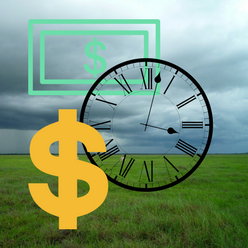The realm of real estate encompasses a diverse array of properties, among which undeveloped land holds a unique position. This type of asset often presents distinctive opportunities for profit, yet its sale is frequently characterised by specific challenges and considerations. The following discussion aims to provide an in-depth exploration into the process involved in selling such properties, offering guidance on every step – from initial assessment to post-sale activities.
Through an examination of market research methods, valuation processes, preparation strategies for sale, marketing techniques and legal considerations pertinent to the sale of undeveloped land – this guide seeks to equip readers with comprehensive knowledge and insights. It is designed to be beneficial for both seasoned real estate investors seeking resourceful information as well as novice landowners aspiring to make their first successful transaction in this domain.
Understanding the Asset
Understanding the asset in the context of selling undeveloped land involves a comprehensive evaluation of its potential for future development and return on investment. This requires an understanding of the undeveloped sell my house fast Fort Worth property market, including factors such as location, zoning laws, and projected growth rates. The undeveloped land value is determined by these factors, which are then used to provide estimates on potential returns. Hence, proper assessment of these elements is essential in identifying and maximizing land sale profitability.
In addition to understanding the environment surrounding the asset, it’s also important to understand its intrinsic qualities. The physical characteristics of the land itself can pose significant impact on land investment opportunities available. These might include aspects like topography, natural features such as water bodies or trees, soil composition and quality that can affect construction costs or agricultural use prospects. These attributes not only determine what functions the land could potentially serve but also significantly influence buyer interest levels and thus play a critical role in determining both demand for and value of the undeveloped parcel.
Further analysis should be conducted beyond solely examining inherent qualities or external influences independently; rather concurrently considering them allows for a more holistic review when understanding the asset at hand. A thorough comprehension of both external market dynamics and internal property traits leads towards making informed decisions when setting price points or negotiating with potential buyers. As part of this process evolves naturally into comprehending trends within related sectors – this forms an integral aspect that feeds into effective market research strategies for selling undeveloped properties.
Market Research
Before establishing an asking price for a barren property, comprehensive market research is essential to determine the current trends and prices in similar locales. Market trends for vacant land can often fluctuate based on factors such as location, economy, and development prospects of the area. To make an informed decision about pricing and selling strategies, it is crucial to investigate comparable sales in the region within a specified timeframe. This information provides insight into what potential buyers may be willing to spend on a similar piece of land.

- Online Research: Utilizing online platforms can significantly aid this process by providing access to data about recent sales, prices and even failed attempts to sell land online.
- Local Real Estate Agents: These professionals have first-hand knowledge of the local market conditions and land selling process. They can provide valuable advice on pricing strategies.
- Land Appraisal: A professional appraisal can give an accurate value assessment of the property considering its unique features and potential uses which are critical elements for quick sales.
- Government Records: Local government records or public databases usually contain detailed information about past transactions which could be used as references during negotiations with prospective buyers.
Incorporating these resources when carrying out market research ensures that sellers have a clear understanding of how their asset sell my house fast Texas compares with others currently available or recently sold in their vicinity. It also aids in developing effective land selling strategies that take into account buyer expectations and market realities while maximizing profit margins from sales transactions. An appreciation of prevailing market conditions places sellers at an advantage when navigating through negotiations with potential buyers; hence enhancing their chances of achieving optimal sale outcomes without compromising on price expectations or prolonging the sale duration unnecessarily.
The findings from this comprehensive research phase will serve as pivotal input data during the subsequent valuation stage where they will be utilized alongside other considerations to establish an equitable asking price for your undeveloped parcel of land.
Valuation Process
The valuation process of a vacant property entails a thorough assessment of the land’s potential worth, incorporating the findings from comprehensive market research and considering factors such as location, size, zoning classification, access to utilities, and potential for development. This assists in determining the best practices for selling land by factoring in current market conditions and ensuring that one can sell raw land fast. It is imperative to note that these aspects are not static but fluctuate depending on regional economic trends and real estate norms. The aim is to arrive at an objective value that would attract buyers seeking vacant land for sale while ensuring profitability.
| Factors | Description | Impact |
|---|---|---|
| Location | Proximity to infrastructure like roads & amenities | High impact on price |
| Size | Total area of the plot being sold | Larger plots generally fetch higher prices |
| Zoning Classification | Legal use of the property (residential, commercial etc) | Impacts type of buyer interested |
| Utilities Access | Availability of water, electricity etc. | Essential for those looking for ready-to-develop plots |
| Development Potential | Future prospects based on area growth trends | Can significantly increase price if high |
While each factor plays its role in influencing a quick property sale, understanding their interaction offers valuable insights into pricing strategies and negotiation tactics. For instance, a smaller parcel situated near vital amenities may command a higher asking price than a larger one located far from basic infrastructures. Similarly, properties with easy access to utilities could be more appealing to buyers than those without such facilities regardless of size or location. Therefore it becomes crucial not only to know these factors but also understand how they interact when formulating tips to sell land quickly.
The importance placed upon accurate valuation cannot be overstated as it forms the foundation upon which sales strategy is built and ultimately influences whether the transaction will be successful or not. With proper valuation complete it justifies why certain lands are priced the way they are, providing a sense of security to potential buyers. This also ensures that sellers receive a fair price for their property. Having completed this critical phase, attention can then be turned towards the preparation for sale which includes marketing efforts and legal due diligence.
Preparation for Sale
Transitioning from valuation, the focus now shifts to the crucial stage of preparing raw terrain for sale, a phase that involves meticulous planning and execution to facilitate a seamless transaction and maximize profits. This preparation includes ensuring legal compliance, enhancing land appeal and effectively positioning it in the market. Understanding rural land selling tips can be instrumental in navigating this process. These tips include clearing any liens on the property, getting an accurate survey of the land, understanding zoning laws, and potentially making improvements to increase its attractiveness to potential buyers.

The speed with which undeveloped land sells depends significantly on its desirability and how well it has been prepared for sale. To ensure a fast land sale, thorough research should be conducted into what features or characteristics attract ‘land buyers near me‘. This could involve considering local trends in development or seeking advice from real estate professionals familiar with the area. It is also essential to find out if there are cash buyers for land in your vicinity as they often facilitate faster transactions due to minimized need for lender involvement which typically prolongs procedures.
The use of technology can simplify this process by providing platforms where sellers can connect directly with potential cash buyers for quick and efficient transactions commonly referred as fast cash for land sales. Such platforms provide critical exposure needed by sellers while offering convenience to prospective buyers who are looking for specific features or locations within their desired price range. As we move forward beyond preparations, it becomes imperative that these strategies are complemented by effective marketing tactics in order to ensure maximum visibility among potential customers and thus enhance chances of securing more profitable deals.
Marketing Strategies
Effective promotion of raw terrain requires the implementation of strategic marketing tactics, which can significantly increase visibility among potential buyers and ensure more profitable transactions. One such strategy involves leveraging online platforms to post undeveloped land listings. Online real estate marketplaces have become increasingly popular for property transactions, providing a vast network of potential buyers across different markets. An advantage of these platforms is their capacity to reach a broader audience compared to traditional means, enabling sellers to showcase the land’s potential through detailed descriptions and high-quality images.

The second important marketing tactic is using local real estate agents who specialize in selling undeveloped lots. These professionals not only have expert knowledge about local zoning laws but also possess an extensive database of clients interested in purchasing undeveloped properties. Collaborating with these agents could expedite the process as they may already have prospective buyers in mind or know how best to advertise your listing based on previous successful sales.
Having considered various strategies around online listings and working with specialist realtors, it becomes clear that effective marketing plays a fundamental role in successfully selling undeveloped land. However, achieving success does not solely depend on this aspect. The next critical element often overlooked by many sellers revolves around understanding legal considerations associated with such transactions. This includes being aware of any zoning restrictions or regulations that might affect what can be built on the land and ensuring transparent communication with potential buyers about these factors from the onset.
Legal Considerations
Having delved into the marketing strategies that can optimize the sale of undeveloped land, it is equally important to address another significant aspect: legal considerations. This area should not be trivialized as a lack of due diligence in this regard can result in costly disputes or even litigation. Therefore, attention must now be turned towards understanding the legal factors that influence transactions involving undeveloped land.
The seller must ensure accurate representation of the property’s physical characteristics and potential uses. This includes disclosing any known zoning restrictions or environmental hazards associated with the land. Clear title to the property is also crucial; prospective buyers will likely require evidence of this before proceeding with any transaction. To assist in these matters, sellers may consider engaging services of an attorney experienced in real estate law. Such professionals can offer guidance on necessary disclosures and help resolve any issues related to title, easements or encroachments.
Besides these considerations, it is paramount for sellers to understand tax implications associated with selling undeveloped land. Depending on how long one has held onto their property, they may be subject to capital gains taxes upon its sale. Furthermore, if there are existing liens on the land – such as unpaid property taxes – these would need to be settled prior to concluding a sale. Navigating through these legal and financial complexities necessitates careful planning and professional advice where necessary. As we move forward from here, we shall explore what happens subsequent to accomplishing a successful sale transaction involving undeveloped land.
After the Sale
The conclusion of a successful transaction marks only the beginning of new responsibilities and considerations for both buyers and sellers. After the sale, the seller must ensure that they have completed all necessary legalities, including reporting the income from the sale to tax authorities. On the other hand, buyers should take necessary steps to protect their investment, such as confirming boundaries or securing zoning permissions if they intend to develop the land.
Further actions required after selling undeveloped land can be categorized under three broad categories: Legal Formalities, Tax Implications and Future Planning.
| Seller | Buyer | |
|---|---|---|
| Legal Formalities | Ensure all paperwork is complete & accurate; Discharge any mortgages or liens on property | Register ownership transfer; Confirm land boundaries & rights |
| Tax Implications | Report income from sale; Pay any capital gains tax due | Understand potential property taxes; Investigate possible tax benefits for development |
| Future Planning | Reinvestment of profits if needed; Plan for impact on overall financial situation | Develop long-term plan for use of land; Secure insurance coverage |
Failure to handle these post-sale tasks adequately may lead to complications down the line. For instance, a seller who does not report their income correctly could face penalties from taxing authorities. Similarly, a buyer who fails to secure proper zoning permissions could find their plans for development thwarted. Therefore, it is crucial that parties remain diligent even after completion of transactions in order to avoid potential issues in future. It is recommended that both parties consult with professionals such as attorneys or real estate experts throughout this process in order ensure thoroughness and accuracy in each step taken after selling undeveloped land.
Frequently Asked Questions
What are the common mistakes people make when selling undeveloped land?
Common errors in selling undeveloped land often include insufficient research on market value, lack of proper marketing, failure to verify zoning restrictions, and not hiring professionals for assistance with legal and financial aspects.
How can I determine if the land I am selling is suitable for development?
Determining land suitability for development involves various assessments, including soil and geological studies, environmental impact evaluations, zoning laws review, and infrastructure availability analysis. Consulting with experienced professionals is often necessary to ensure accurate evaluation.
What are the potential tax implications of selling undeveloped land?
The potential tax implications of selling undeveloped land may include capital gains tax on any profit made, although exceptions exist. Other considerations might involve estate or inheritance taxes, depending on individual circumstances.
Can I sell my undeveloped land directly to a developer or should I use a real estate agent?
Undeveloped land can be sold directly to a developer; however, employing a real estate agent may offer advantages such as professional negotiation skills and market knowledge, potentially maximizing the sale price and expediting the process.
What are the environmental considerations when selling undeveloped land?
Environmental considerations when selling undeveloped land include assessing potential ecological impacts, such as disruption to local wildlife and habitats. Other factors may involve soil contamination, water quality, and flood risk assessment.
Other Articles You Might Enjoy
Selling Your House Before Its Fully Paid Off Heres What To Do

